College of College of Graduate Studies
These natural extracts are not just traditional
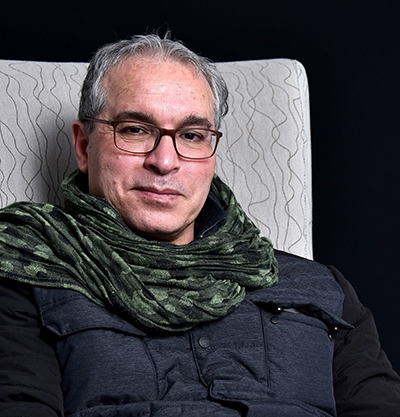 Prof Malik Maaza (Incumbent: UNESCO-Unisa Africa Chair in Nanosciences and Nanotechnology) is leading national research into the nanodelivery of an African herbal medicine that could contribute towards a solution to the global pandemic of Covid-19.
Prof Malik Maaza (Incumbent: UNESCO-Unisa Africa Chair in Nanosciences and Nanotechnology) is leading national research into the nanodelivery of an African herbal medicine that could contribute towards a solution to the global pandemic of Covid-19.
Having earned local and international recognition and trust in his expertise, Unisa’s Prof Malik Maaza is conducting Covid-19 nanodrug research as part of the national effort, in line with the government’s vision and in conjunction with other local and international partners. Maaza, incumbent of the UNESCO-Unisa Africa Chair in Nanosciences and Nanotechnology in the College of Graduate Studies, appreciates the opportunity to contribute towards a solution to this global pandemic.
It is within the chair that a multidisciplinary research programme in nanomaterials is conducted, related to the major sustainable development goals (SDGs) and natural priorities such as energy, water and health. In the health component, researchers embarked on developing nanoparticles for effective antibacterial applications because of the growing resistance to standard antibacterial products.
With the emergence of Covid-19, they were able to re-profile their research to concentrate on the pandemic at a national level. Since lockdown at the time prevented access to laboratories, they started by doing computational modelling on the protocols they were using for antibacterial applications and profiled these towards severe acute respiratory syndrome (SARS), whereby positive and sound results were obtained. Currently, the Centre for High Performance Computation (CHPC), both at Unisa and the Council for Scientific and Industrial Research (CSIR) in Cape Town, is being used to conduct the modelling research. The results were shared with the South African Medical Research Council (SAMRC) and other colleagues from the CSIR, Mintek and sister universities.
Exploring Africa’s rich traditional medicine knowledge
"What Covid-19 has shown us is that we have extensively neglected our traditional medicine. When we go to pharmacies, the origins of the active molecules that are used are, in fact, naturally extracted from plants. The bulk of them come from the Amazon, yet in Africa, including Mauritius and Madagascar, we have extraordinarily rich natural extracts and herbal medicines that we are discounting, which is not right," expressed Maaza.
While the initial Covid-19 protocol proposed was based on hydroxychloroquine, which has since been discredited, researchers from the chair are concentrating on another antimalarial bioactive compound, artemisinin, derived from Artemisia afra - wild wormwood, African wormwood (English), wilde-als (Afrikaans), umhlonyane (isiXhosa), mhlonyane (isiZulu), lengana (Tswana), zengana (Southern Sotho) - which is equivalent to Artemisia annua, a plant from Madagascar.
The suggested and shared protocol consists of using silver nanoparticles bioconjugated (grafted) with bioactive artemisia-active molecules such as artemisinin and its derivatives, artemether and artesunate (Figures 1 & 2). These nanoparticles would act as a vehicle steering the bioactive molecules to the viral site and transporting it locally.
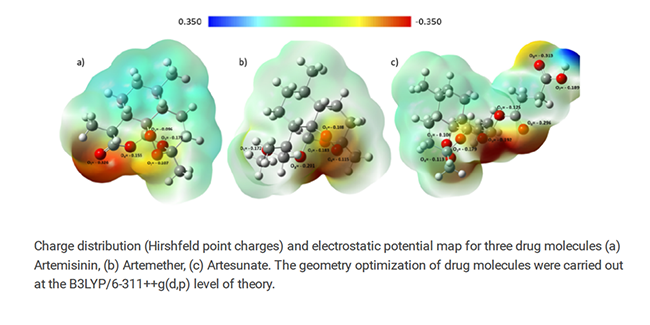 Figure 1 reports on the computational molecular structures of the three major bioactive compounds in Artemisia afra: (a) artemisinin, (b) artemether, and (c) artesunate
Figure 1 reports on the computational molecular structures of the three major bioactive compounds in Artemisia afra: (a) artemisinin, (b) artemether, and (c) artesunate
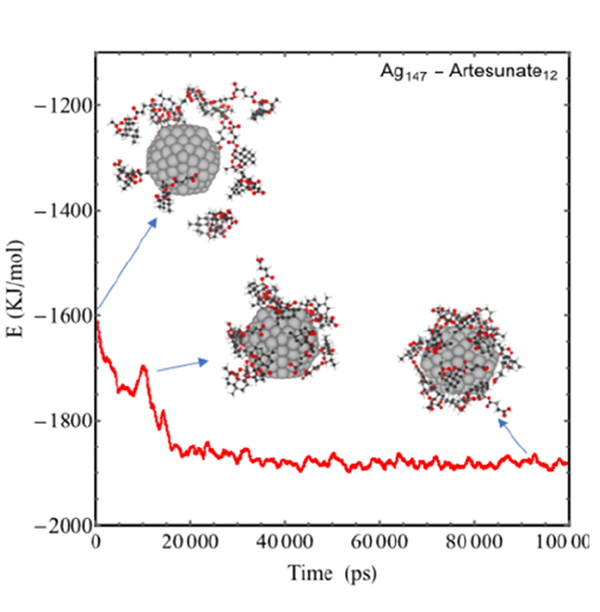 Figure 2: Interaction energies (vdW) between artemisinin, artemether, and artesunate and the silver nanoparticles, highlighting how intense their binding is to the silver surface.
Figure 2: Interaction energies (vdW) between artemisinin, artemether, and artesunate and the silver nanoparticles, highlighting how intense their binding is to the silver surface.
Once the molecules are delivered, it is expected that the nanoparticles will diffuse through the virus wall, where it is likely that they will interfere with the virus’s ribonucleic acid (RNA), stopping its replication, as has been observed previously in the case of the Tacaribe virus (TCRV).
Following strict medical and scientific protocols
Because of the partial lockdown in other parts of the globe, the proposed protocol was reproduced by fellows of the chair in countries such as Kenya, Morocco and Pakistan.
Maaza reiterated that in the case of natural extracts such as lengana, there is a need to identify the bioactive compounds and have them investigated scientifically as would be done for any compound intended for medical application. Explaining the importance of giving a scientific signature to the natural extracts, he asserts that the medical and scientific standard way of testing the compounds needs to be followed as failure to do so will always have the negative connotation that the natural extracts are "just traditional".
Reflecting on the health storms that South Africa has had to face in the past, Maaza is confident that South Africa is a key player geared towards finding a solution to the pandemic. He expressed confidence in the scientific knowledge and expertise from institutions such as the SAMRC, CSIR, Mintek and different universities. He believes that they have the necessary "know-how" because of their research infrastructure that has earned South Africa respect from the international community.
Positive as we should be, Maaza warns that we need to bear in mind that 55% of the world population lives in urban areas, a proportion expected to increase to 68% by 2050, of which 90% of the shift will be to Asia and Africa. This huge crowding in small areas is likely to induce the emergence of novel or severe forms of viral components. "Some viruses will become aggressive and, therefore, we need to prepare ourselves for other types of global health problems. We have to continue and pursue our focus on developing new pharmaceutical and active compounds against potential threats. Artificial intelligence would be extremely helpful in fast-tracking and identifying bio-engineering of the correct protocols."
* By Nancy Legodi, Acting Journalist, Department of Institutional Advancement
Publish date: 2020-09-04 00:00:00.0


 Unisa honours Dr OK Matsepe's enduring legacy
Unisa honours Dr OK Matsepe's enduring legacy
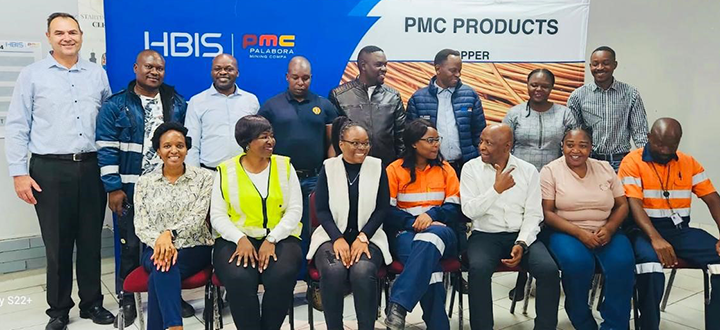 Great strides towards concretising Unisa-PMC partnership
Great strides towards concretising Unisa-PMC partnership
 Mental health among men in the workplace needs more attention
Mental health among men in the workplace needs more attention
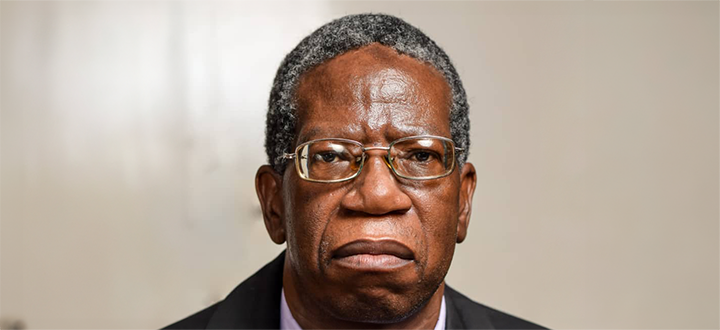 "I owe everything to Unisa and my late supervisor's priceless mentoring"
"I owe everything to Unisa and my late supervisor's priceless mentoring"
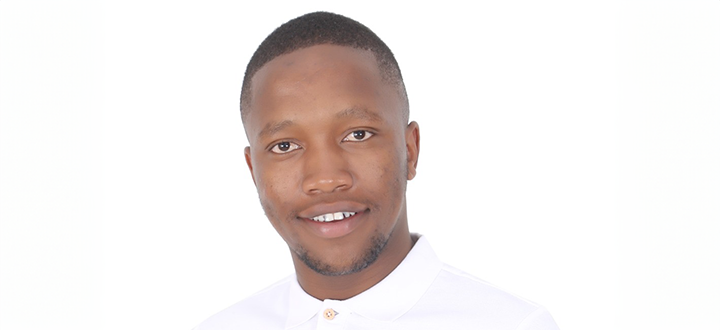 Majikijela - a queer scholar raising homosexuality awareness through his work
Majikijela - a queer scholar raising homosexuality awareness through his work